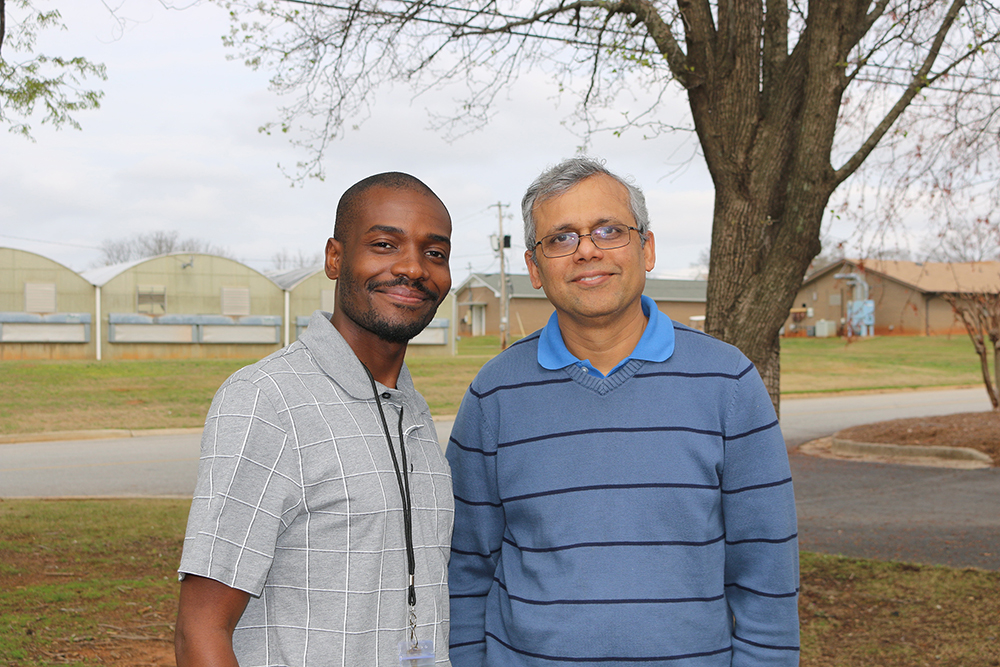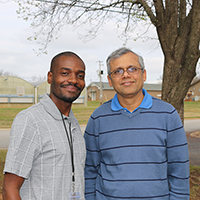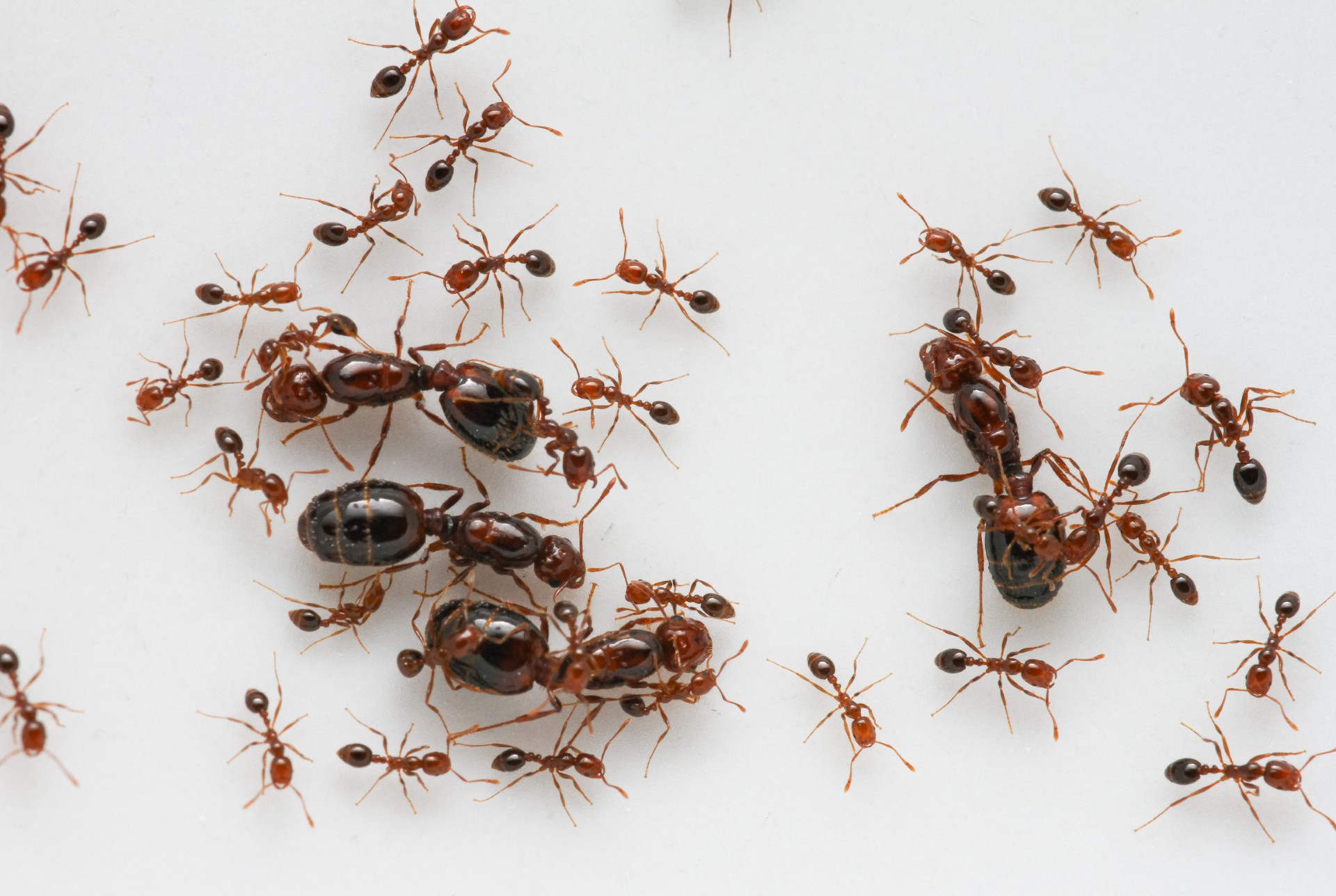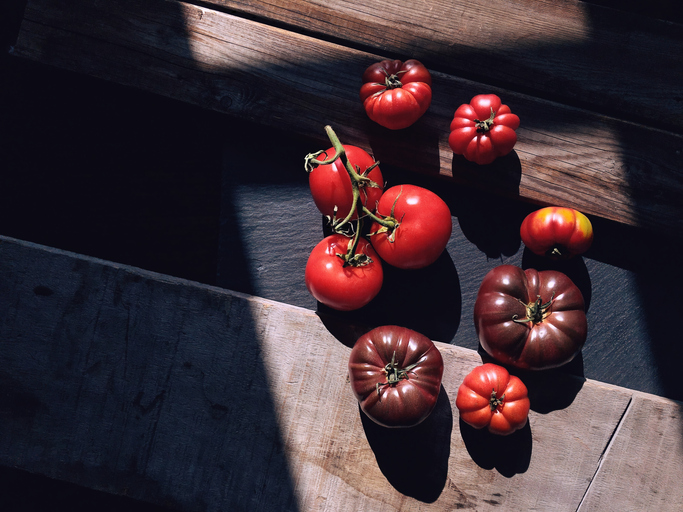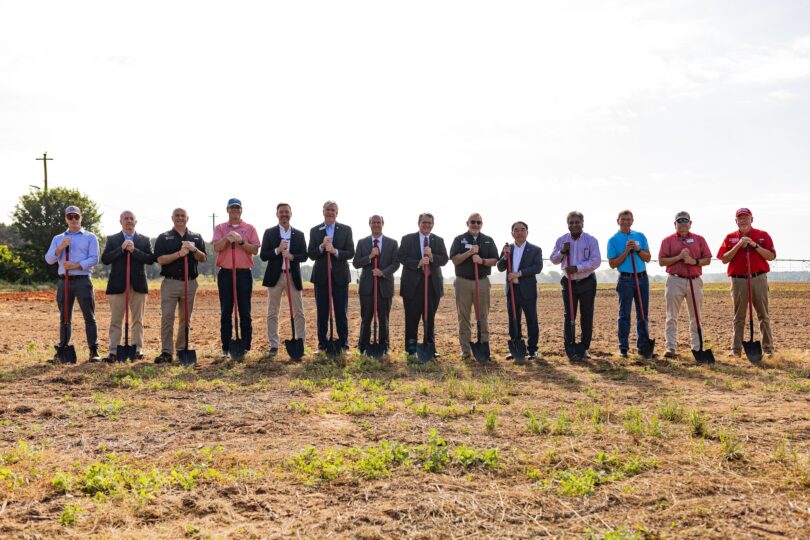People around the world eat peanuts in all sorts of ways: as a roasted snack, as a powder sprinkled onto cereal, as a sauce blended into stew. But would consumers gulp down a peanut beverage? Aggrey Gama thinks so.
Gama, a doctoral student at the University of Georgia’s (UGA) Griffin campus, is crafting a drink that would deliver the nutrition and tastiness of peanuts to consumers in his home country of Malawi.
He recently returned to the U.S. from Malawi, where he visited with family and conducted surveys of potential consumers.
“What are the factors that Malawians are considering when they are making food choices? That is what we wanted to know,” said Gama.
He surveyed shoppers in the northern, central and southern regions of the country to find out how they prioritize nutrition, ease of preparation, cost and other factors. For their trouble, survey respondents received the equivalent of $1.
“These consumers are completely different than the consumers in the U.S. It would not be practical to base assumptions on the priorities of the American consumer,” Gama said.
Malawi is one of the poorest countries in the world, and more than 85 percent of the population lives in rural areas. That doesn’t mean that consumer preferences don’t matter.
Developing a product that appeals to consumers can drive economic growth, creating demand for farmers’ produce and jobs for the people who manufacture food products. These jobs put cash into people's pockets so that they can then buy the product.
But getting a peanut beverage to market requires some basic information: Would consumers buy a drink that needs refrigeration or do they require something that is shelf-stable? Do mothers want a fully prepared drink or a concentrated one? Is cost the greatest factor or would people pay more for a tastier drink?
The survey measured those opinions and more, but Gama was surprised how many people didn’t necessarily rank taste or nutrition highest. They wanted a drink to satisfy their hunger, a beverage that would make them feel full.
“It’s a survival technique, hunger abatement,” he said.
Data compiled by the country’s National Statistical Office show that 37 percent of Malawi’s children are stunted and 64 percent suffer from anemia. A beverage that fits consumers’ expectations for flavor and shelf life, while providing the vital nutrients found in peanuts, would offer multiple benefits.
Gama will now head into the Sensory Evaluation and Consumer Laboratory, which is part of the UGA College of Agricultural and Environmental Sciences’ (CAES) facilities at UGA-Griffin. He’ll be working with six varieties of roasted peanuts that he brought from Malawi to create the peanut-based beverage. This product optimization will test the physical, chemical and sensory properties of various potential recipes and will allow Gama to develop the processing protocol.
One of the questions he’ll face along the way is just how much oil is acceptable in the drink. He wants a filling drink, but the polyunsaturated fatty acids that make up about one-third of the fat in peanuts can go bad fairly quickly. Monounsaturated fatty acids like oleic acid are much more stable, but peanut breeders are still working to develop varieties for Africa with high oleic acid concentration, along with traditional traits for good flavor and disease resistance.
“This is a bit more challenging because I am considering full-fat peanuts,” Gama said. “It is important because protein and fat are very expensive in my country.”
The final drink formula might also include cow’s milk, an ingredient that many survey respondents favored.
Once he has refined the recipe to meet all the important criteria — nutrition, shelf life, flavor, cost, etc. — Gama will return to Malawi to conduct taste tests with potential consumers. By the end of the project, he plans to have a product ready for a company to scale up to production.
Gama, under the mentorship of CAES Assistant Professor Koushik Adhikari, has a fellowship from the Legume Scholars Program, a partnership between the CGIAR Research Program on Grain Legumes and the Feed the Future Legume Innovation Lab and Peanut and Mycotoxin Innovation Lab.
The program specifically targets promising young scientists from developing nations who will study in the U.S., then return to their countries and work to increase food security and household incomes for smallholder farmers through enhanced legume production, processing or marketing.
Back in the U.S., where he has already completed the coursework for his doctorate at UGA in Athens, Georgia, Gama is analyzing the data from the consumer survey.
“A lot of people were not satisfied with (the) diversity of peanut products on the market, but could not suggest alternatives they’d like to see,” he said.
While many groundnut farmers in Malawi are smallholders who sell into an informal market, a formal market does exist. Creating new products that appeal to consumers creates a loop that adds sustainability to the market. Processors buy the local peanut crop, which increases farmers’ profitability. Farmers have more expendable cash, so they buy more of the peanut beverage and processors buy even more peanuts.
In two years, by the time Gama completes his doctoral work, the product will be ready to scale up to commercial production.
Gama always knew he wanted to work on the food supply, but he wasn’t certain how. Raised by grandparents who were primary school teachers, he learned the value of education at a young age. Still, he watched as his grandparents grew maize, beans and groundnuts for the household and realized how important food safety and security is to a society.
After getting a bachelor’s degree 10 years ago, he first went to work in the dairy industry, then with the Malawi Bureau of Standards. After a few years, he returned to school at the University of Leeds in the U.K., then went on to UGA. He is currently an academic member of staff in the Department of Food Science and Technology at Lilongwe University of Agriculture and Natural Resources (LUANAR) in Malawi.
“Whatever you do in school, that may change. But you should choose something that can help you to stand on your own, even if you are unemployed,” he said. “There are careers in research, but I also see vendors selling things to eat on the street and think, ‘That’s food science, too.’”

